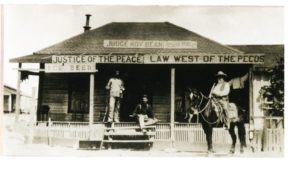 The restricted appeal – a unique feature of Texas civil procedure – allows an appeal for up to six months after judgment, so long as the appellant did not participate in the proceedings below and appellate review is limited to matters shown on the face of the court record. These proceedings usually involve belated challenges to default judgments, focusing on technical issues such as the language used in the return of service, compliance with the specific requirements of a statute about service, etc. The unusual restricted appeal in Ex parte Fallis – a substantive challenge by DPS to an expungement order – reminds that this procedural device can also be used to raise legal and factual sufficiency challenges. No. 05-18-00348-CV (Jan. 29, 2019) (mem. op.)
The restricted appeal – a unique feature of Texas civil procedure – allows an appeal for up to six months after judgment, so long as the appellant did not participate in the proceedings below and appellate review is limited to matters shown on the face of the court record. These proceedings usually involve belated challenges to default judgments, focusing on technical issues such as the language used in the return of service, compliance with the specific requirements of a statute about service, etc. The unusual restricted appeal in Ex parte Fallis – a substantive challenge by DPS to an expungement order – reminds that this procedural device can also be used to raise legal and factual sufficiency challenges. No. 05-18-00348-CV (Jan. 29, 2019) (mem. op.)
Monthly Archives: January 2019
The much-watched Dallas case of Glassdoor Inc. v. Andra Group posed important questions about protection of anonymous speech online – here, posts on the popular job search website glassdoor.com – as well as the applicability of the TCPA to pre-suit discovery petitions under Tex. R. Civ. P. 202. The Texas Supreme Court, however, found that it “may not reach these issues . . . because the Rule 202 proceeding has been rendered moot by the fact that the petitioner’s potential claims against the anonymous speakers are now time-barred as a matter of law.” No. 17-0463 (Tex. Jan. 25, 2019). Accordingly, the Fifth Court’s opinion stands as the law on the matter in Dallas (as persuasive authority rather than precedent, as the Texas Supreme Court vacated both the trial and appellate rulings), under which a Rule 202 petition can proceed when the record supports a finding “that the likely benefit of allowing [petitioner] to take a deposition about two anonymous reviews on [respondent’s] website outweighed the burden or expense of the procedure.”
 As my LPCH colleague John Adams and I have observed, whether factual sufficiency review will return to life in months ahead remains to be seen. A recent factual sufficiency challenge to the trial court’s allocation of responsibility in an auto accident case failed, however, in part because even in a factual sufficiency review: “The fact finder is the sole judge of the witness’ credibility, and may choose to believe one witness over another, and a reviewing court may not impose its own opinion to the contrary.” Cedacero-Guamancela v. Sustaita-Salazar, 05-18-00083-CV (Jan. 23, 2019) (mem. op.) (citations omitted). (Valuable 600Commerce merchandise will be given to anyone who guesses why the above bird is the illustration for this blog post.)
As my LPCH colleague John Adams and I have observed, whether factual sufficiency review will return to life in months ahead remains to be seen. A recent factual sufficiency challenge to the trial court’s allocation of responsibility in an auto accident case failed, however, in part because even in a factual sufficiency review: “The fact finder is the sole judge of the witness’ credibility, and may choose to believe one witness over another, and a reviewing court may not impose its own opinion to the contrary.” Cedacero-Guamancela v. Sustaita-Salazar, 05-18-00083-CV (Jan. 23, 2019) (mem. op.) (citations omitted). (Valuable 600Commerce merchandise will be given to anyone who guesses why the above bird is the illustration for this blog post.)
 A useful reminder about the black-letter law governing appellate review of TROs – a statement that, while accurate, may be harder to satisfy than it appears – was given in In re Aludogbu: “A party has no remedy by appeal when a temporary restraining order is granted that is not in compliance with the rules, and a writ of mandamus is appropriate in such situations.” No. 05-19-00078-CV (Jan. 24, 2019) (mem. op.)
A useful reminder about the black-letter law governing appellate review of TROs – a statement that, while accurate, may be harder to satisfy than it appears – was given in In re Aludogbu: “A party has no remedy by appeal when a temporary restraining order is granted that is not in compliance with the rules, and a writ of mandamus is appropriate in such situations.” No. 05-19-00078-CV (Jan. 24, 2019) (mem. op.)
 Justice Molberg‘s first appearance as an opinion author in this blog involves Alliance’s allegation that Top Hat was a “a domestic, for-profit limited liability corporation authorized to do business in the State of Texas with its principal office in Ennis, Texas.” Alliance won an award of attorneys’ fees; Top Hat argued that it was an LLC and was thus not subject to CPRC § 38.001. The Fifth Court rejected that argument: “Top Cat did not file a rule 93 verified affidavit denying that it is a corporation as alleged and, therefore, failed to preserve its complaint that it is not an entity against which attorney’s fees may be awarded under section 38.001.” Top Cat Ready Mix LLC v. Alliance Trucking LP, No. 05-18-00175-CV (Jan. 22, 2019) (mem. op.)
Justice Molberg‘s first appearance as an opinion author in this blog involves Alliance’s allegation that Top Hat was a “a domestic, for-profit limited liability corporation authorized to do business in the State of Texas with its principal office in Ennis, Texas.” Alliance won an award of attorneys’ fees; Top Hat argued that it was an LLC and was thus not subject to CPRC § 38.001. The Fifth Court rejected that argument: “Top Cat did not file a rule 93 verified affidavit denying that it is a corporation as alleged and, therefore, failed to preserve its complaint that it is not an entity against which attorney’s fees may be awarded under section 38.001.” Top Cat Ready Mix LLC v. Alliance Trucking LP, No. 05-18-00175-CV (Jan. 22, 2019) (mem. op.)
The official investiture of the eight new Justices on the Fifth Court of Appeals will be at 3:30 on January 30, 2019, at the Belo Mansion in downtown Dallas.
 Justice Pedersen‘s first appearance in this blog provides a succinct reminder about a basic principle of foreclosure litigation: “[A] foreclosure sale may be set aside if the creditor fails to provide the notice required by statute. However, any challenge to the sale of property under a deed of trust must be brought in a separate suit in which title issues can be determined, not in an action for forcible detainer.” Smith v. Deutsche Bank, No. 05-17-01022-CV (Jan. 16, 2019) (mem. op.)
Justice Pedersen‘s first appearance in this blog provides a succinct reminder about a basic principle of foreclosure litigation: “[A] foreclosure sale may be set aside if the creditor fails to provide the notice required by statute. However, any challenge to the sale of property under a deed of trust must be brought in a separate suit in which title issues can be determined, not in an action for forcible detainer.” Smith v. Deutsche Bank, No. 05-17-01022-CV (Jan. 16, 2019) (mem. op.)
 In the first opinion by Justice Osborne discussed by this blog, Porter complained that he should have been awarded attorneys’ fees in a successful DTPA claim, noting that his attorney’s invoice was admitted without objection. Unfortunately, though: “Porter bore the burden of proving reasonableness. Consequently, on appeal, the question is not whether A-1 objected to Porter’s failure to offer evidence of reasonableness, but whether the evidence in the record is sufficient to support the trial court’s implied finding that Porter did not meet his burden of proof.” As Porter did not offer evidence on this point besides the invoice itself, the trial court’s ruling was affirmed. Porter v. A-1 Parts, No. 05-17-01468-CV (Jan. 14, 2019) (mem. op.)
In the first opinion by Justice Osborne discussed by this blog, Porter complained that he should have been awarded attorneys’ fees in a successful DTPA claim, noting that his attorney’s invoice was admitted without objection. Unfortunately, though: “Porter bore the burden of proving reasonableness. Consequently, on appeal, the question is not whether A-1 objected to Porter’s failure to offer evidence of reasonableness, but whether the evidence in the record is sufficient to support the trial court’s implied finding that Porter did not meet his burden of proof.” As Porter did not offer evidence on this point besides the invoice itself, the trial court’s ruling was affirmed. Porter v. A-1 Parts, No. 05-17-01468-CV (Jan. 14, 2019) (mem. op.)
 Swearingen sued her former employer, Gillar Home Health Care, for not accommodating her pregnancy-related disability. At trial, “liability turned on whether Swearingen sent Evelyn Zapalac, the supervisor who fired her, a doctor’s note to corroborate a medical-related absence or if Swearingen instead simply failed to report for work.” The trial court allowed the defense to read Zapalac’s deposition testimony rather than calling her live. The Fifth Circuit reversed and remanded. Swearingen v. Gillar Home Health Care LP, No. 17-20600 (Jan. 11, 2019) (unpublished).
Swearingen sued her former employer, Gillar Home Health Care, for not accommodating her pregnancy-related disability. At trial, “liability turned on whether Swearingen sent Evelyn Zapalac, the supervisor who fired her, a doctor’s note to corroborate a medical-related absence or if Swearingen instead simply failed to report for work.” The trial court allowed the defense to read Zapalac’s deposition testimony rather than calling her live. The Fifth Circuit reversed and remanded. Swearingen v. Gillar Home Health Care LP, No. 17-20600 (Jan. 11, 2019) (unpublished).
While Zapalac lived 95.5 miles from the courthouse – 4.5 miles short of the 100-mile radius that makes a witness “unavailable” under Fed. R. Civ. P. 32 – the Court observed: “The Rule does not use a modifier such as ‘about’ or ‘approximately’ or ‘around.'” The Court further noted that this rule’s requirements have been “summarized . . . as prohibiting deposition testimony unless ”live testimony from the deponent is impossible or highly impracticable.'” And this error was harmful because “the only person who testified to knowing Zapalac did not receive the doctor’s note was Zapalac herself,” making “the harm . . . especially acute because liability inged on competing credibility determinations.” Note that a different result would obtain in state court under Tex. R. Evid. 801(e)(1) which defines as a non-hearsay statement: “A Deponent’s Statement. In a civil case, the statement was made in a deposition taken in the same proceeding. ‘Same proceeding’ is defined in Rule of Civil Procedure 203.6(b). The deponent’s unavailability as a witness is not a requirement for admissibility.”
 Turnover in the Fifth Court at the start of 2019 created optimism about motions for rehearing. For panels where two Justices changed, that optimism may be misplaced in light of Tex. R. App. P. 49.3: “A motion for rehearing may be granted by a majority of the justices who participated in the decision of the case. Otherwise, it must be denied.” E.g., Apex Fin. Corp. v. Loan Care, No. 05-17-00855-CV (Jan. 11, 2019).
Turnover in the Fifth Court at the start of 2019 created optimism about motions for rehearing. For panels where two Justices changed, that optimism may be misplaced in light of Tex. R. App. P. 49.3: “A motion for rehearing may be granted by a majority of the justices who participated in the decision of the case. Otherwise, it must be denied.” E.g., Apex Fin. Corp. v. Loan Care, No. 05-17-00855-CV (Jan. 11, 2019).
 Two recent opinions set the current guideposts for whether an issue is tried by consent. On the one hand, a recent post described the Fifth Court’s reasoning in Avelar v. Nunez, No. 05-17-00631-CV (Nov. 20, 2018) (mem. op.), which found no consent to a particular damages element from a cross that related to earlier-pleaded damages theories. On the other, there is BB&T Co. v. Seideman, which observed:
Two recent opinions set the current guideposts for whether an issue is tried by consent. On the one hand, a recent post described the Fifth Court’s reasoning in Avelar v. Nunez, No. 05-17-00631-CV (Nov. 20, 2018) (mem. op.), which found no consent to a particular damages element from a cross that related to earlier-pleaded damages theories. On the other, there is BB&T Co. v. Seideman, which observed:
“In this case, the Bank’s claims against L&S and the guarantors were based on the loan documents. The Note, the statute of frauds notice, and the guaranties were admitted into evidence without objection. Holmes, Brian, Robert, and Seideman testified about the statute of frauds notice and the lack of a written agreement modifying the terms of the Note or the guaranties. Both parties argued to the trial court about the effect of the statute of frauds and the contractual waivers on L&S’s and the guarantors’ affirmative defenses and responded to the trial court’s questions on both issues. L&S and the guarantors did not object to the evidence, the arguments, or the trial court’s questions on the ground they related to an issue not pleaded by the Bank. We therefore conclude the issue of whether the statute of frauds or the contractual waivers precluded L&S and the guarantors from relying on any of the pleaded affirmative defenses was tried by consent.”
No. 05-17-00381-CV (June 21, 2018) (mem. op.)
 A new discussion of St. John Missionary Baptist Church v. Flakes, 547 S.W.3d 311, 313–18 (Tex. App.—Dallas 2018, pet. pending) (en banc), appeared in EMF Swiss Avenue LLC v. Peak’s Addition HOA: “[T]he HOA contends that EMF’s appellate issue doesn’t match the HOA’s summary judgment ground because EMF focuses on whether the Board abused its discretion, but the HOA’s summary judgment ground focused on whether the City and Board interpreted the City’s ordinances correctly. We . . . disagree with the HOA. In this case, abuse of discretion and ordinance interpretation are two sides of the same coin. The HOA’s summary judgment ground asserted that the Board abused its discretion because it misinterpreted the ordinances and thus affirmed the permit. . . . On appeal, EMF’s issue asserts that the trial court erred because the City and the Board didn’t abuse their discretion in issuing and affirming the permit, and its appellate argument presents its own ordinance interpretation.” No. 05-17-01112-CV (Dec. 28, 2018) (mem. op.)
A new discussion of St. John Missionary Baptist Church v. Flakes, 547 S.W.3d 311, 313–18 (Tex. App.—Dallas 2018, pet. pending) (en banc), appeared in EMF Swiss Avenue LLC v. Peak’s Addition HOA: “[T]he HOA contends that EMF’s appellate issue doesn’t match the HOA’s summary judgment ground because EMF focuses on whether the Board abused its discretion, but the HOA’s summary judgment ground focused on whether the City and Board interpreted the City’s ordinances correctly. We . . . disagree with the HOA. In this case, abuse of discretion and ordinance interpretation are two sides of the same coin. The HOA’s summary judgment ground asserted that the Board abused its discretion because it misinterpreted the ordinances and thus affirmed the permit. . . . On appeal, EMF’s issue asserts that the trial court erred because the City and the Board didn’t abuse their discretion in issuing and affirming the permit, and its appellate argument presents its own ordinance interpretation.” No. 05-17-01112-CV (Dec. 28, 2018) (mem. op.)
 I was on a CLE panel at the Belo today about the Texas anti-SLAPP statute with my partner Josh Sandler and Hon. Gena Slaughter of Dallas’s 191st District Court; here is a copy of our PowerPoint presentation.
I was on a CLE panel at the Belo today about the Texas anti-SLAPP statute with my partner Josh Sandler and Hon. Gena Slaughter of Dallas’s 191st District Court; here is a copy of our PowerPoint presentation.
 “In sum, the record in this case reveals a long-standing and cordial business relationship in which Reaves considered Talley ‘a trusted advisor and friend.’ However, the ‘mere fact that one party to a relationship subjectively trusts the other does not indicate the existence of a fiduciary relationship.'” That conclusion was reinforced because the borrower signed a forbearance agreement in which she acknowledged that the relationship in question “is solely that of debtor and creditor,” among other matters. PlainsCapitalBank v. Reaves, No. 05-17-01184-CV (Dec. 17, 2018) (mem. op.) (citations omitted).
“In sum, the record in this case reveals a long-standing and cordial business relationship in which Reaves considered Talley ‘a trusted advisor and friend.’ However, the ‘mere fact that one party to a relationship subjectively trusts the other does not indicate the existence of a fiduciary relationship.'” That conclusion was reinforced because the borrower signed a forbearance agreement in which she acknowledged that the relationship in question “is solely that of debtor and creditor,” among other matters. PlainsCapitalBank v. Reaves, No. 05-17-01184-CV (Dec. 17, 2018) (mem. op.) (citations omitted).
Stover v. ADM Milling Co. involved several issues about corporate veil-piercing arising from a failed real estate deal. Two points in particular are worth noting:

- Standing. “Individuals found liable when the corporate veil is pierced do not have standing to appeal the findings of liability against a corporation if the corporation does not appeal. . . . The individual shareholders are only injured when the corporate veil is pierced and whether the corporate veil is pierced is the only issue about which they have standing to complain with respect to the findings against the corporation.”
- Legal standard. While TBOC § 21.223 does not define the key phrase “primarily for the direct benefit” – “courts have concluded that evidence showing that funds derived from the corporation’s fraudulent conduct were ‘pocketed by or diverted to’ the individual defendant is sufficient to demonstrate the requirement of a direct personal benefit. On the other hand, evidence showing that the fraudulently procured funds were used for the corporation’s financial obligations refutes the notion that the fraud was perpetrated primarily for the direct personal benefit of an individual.” (citations omitted).
No. 05-17-00778-CV (Dec. 28, 2018) (mem. op.)
 Together with LPCH colleagues John Adams and Paulette Miniter, I’ve written three articles about the effect of the 2018 judicial elections in three areas:
Together with LPCH colleagues John Adams and Paulette Miniter, I’ve written three articles about the effect of the 2018 judicial elections in three areas:
- Removal. “Removal to Federal Court After the November 2018 Elections:
More Incentive, But Less Receptiveness?” - Standards of Review. The Return of Factual Sufficiency Review?
- Roles of judge and jury. Three Sentences to Study: Potential New Court of Appeals Perspectives
 On January 3, the Fifth Court issued its first opinion signed by one of the newly-elected “Slate of Eight” Justices. Signed by Chief Justice Burns, it is a short memorandum opinion acknowledging the appellant’s request to dismiss the appeal, in substantially the same form that the Court has ordinarily used for such matters.
On January 3, the Fifth Court issued its first opinion signed by one of the newly-elected “Slate of Eight” Justices. Signed by Chief Justice Burns, it is a short memorandum opinion acknowledging the appellant’s request to dismiss the appeal, in substantially the same form that the Court has ordinarily used for such matters.
 The ongoing geyser of TCPA opinions continues with Dickens v. Webster, a tortious interference case arising from a dispute among attorneys about a contingent fee agreement. It offers three points of broad interest:
The ongoing geyser of TCPA opinions continues with Dickens v. Webster, a tortious interference case arising from a dispute among attorneys about a contingent fee agreement. It offers three points of broad interest:
- The TCPA does not require that a statement be made to the public;
- For the “commercial speech” exemption to apply, the communications at issue must relate to the defendant’s services – not the plaintiff’s; and
- On page 15 of the opinion, a “road map” for establishing a prima facie case of tortious interference; here, the alleged substitution of one contract for another, accompanied by emails supporting the plaintiff’s version of events.
No. 05-17-00423-CV (Dec. 31, 2018) (mem. op)
 An important Dallas case about appropriate proof of damages under the TCPA was recently reversed by the Texas Supreme Court in S&S Emergency Training Solutions v. Elliott. That Court held: “Elliott’s pre-resignation letter and the affidavits of Vecchio and Cellio support, at minimum, rational inferences that (1) EMTS’s paramedic classes were profitable before Elliott’s disclosures of confidential information; (2) the disclosures were a cause of ACI’s terminating the consortium agreement; and (3) termination of the consortium agreement caused EMTS to lose the ability to conduct the profitable paramedic training classes. Thus, EMTS provided prima facie evidence that Elliott’s disclosures caused EMTS to lose profits. That evidence was sufficient to preclude dismissal of EMTS’s suit.” No. 17-0628 (Tex. Dec. 21, 2018) (citations omitted).
An important Dallas case about appropriate proof of damages under the TCPA was recently reversed by the Texas Supreme Court in S&S Emergency Training Solutions v. Elliott. That Court held: “Elliott’s pre-resignation letter and the affidavits of Vecchio and Cellio support, at minimum, rational inferences that (1) EMTS’s paramedic classes were profitable before Elliott’s disclosures of confidential information; (2) the disclosures were a cause of ACI’s terminating the consortium agreement; and (3) termination of the consortium agreement caused EMTS to lose the ability to conduct the profitable paramedic training classes. Thus, EMTS provided prima facie evidence that Elliott’s disclosures caused EMTS to lose profits. That evidence was sufficient to preclude dismissal of EMTS’s suit.” No. 17-0628 (Tex. Dec. 21, 2018) (citations omitted).


